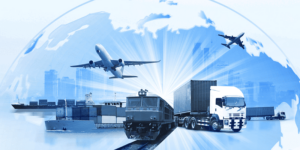
With the growth of the digital economy in India, the focus of the logistics and supply chain industry is now firmly on enhancing operational and cost efficiency, as customers, both at the business and retail level, are becoming increasingly demanding.
To keep pace with the demand for faster delivery and agile supply chain service, the conventional paradigms of supply chain management are undergoing a transformative shift, propelled by the integration of cognitive tools leveraging artificial intelligence (AI) and machine learning (ML).
For the logistics industry, it’s an exciting phase as efficiency, precision, and adaptability are redefining the operational dynamics of logistics. Demand forecasting, inventory management, revenue leakage prevention, route optimisation, predictive maintenance and customer experience–AI and ML are redefining all the key supply chain efficiency measurement parameters to break new ground.
According to a report published by Mckinsey in 2021, Al-powered supply chain management has helped early adopters in enhancing cost efficiency by 15%, inventory management efficiency by 35% and service efficiency by 65%.
The future looks extremely promising for the companies that can adopt the right AI solutions.
Possibilities unlimited with AI
The cornerstone of this data-driven revolution lies in the seamless integration of AI into the logistics operations. By evaluating a diverse data set, AI algorithms pave the way to intelligent planning and decision-making with improved visibility and process automation.
AI brings immense possibilities, as the data-driven technology is always evolving. By leveraging data, it enhances human intelligence and competency. From predictive analytics that leverage machine learning algorithms (subset of AI), to build predictive models as well as demand patterns and route optimisation algorithms that minimise transit times, AI is ushering in an era of elevated efficiency.
Redefining customer service and operational agility
Some of the important use cases in the customer service and experience space are centered around the growing use of advanced AI-driven chatbots to handle customer inquiries, track shipments, and improve overall customer service efficiency. Another important use case is around AI-driven pricing models that leverage AI to analyse historical data, market trends, and current demand patterns to offer dynamic pricing. Quick AI-driven response to the market developments keeping in mind the competition prices always strengthen profitability. Accurate and competitive quotes positively impact the overall revenue and yields for the logistics companies.
Automated cargo classification and sorting is another interesting development where cognitive AI systems can automatically classify incoming cargo based on size, weight, fragility, and other parameters. This helps streamline sorting processes, reducing manual labor and errors.
Also, tech-enabled logistic companies are using the power of AI in the QRM (quality revenue management). Instead of randomly auditing B2B shipments for volumetric weight aberrations and eventual revenue loss, they are using the historical trend of under invoiced cargo by location and customers to train models that recommend shipments for audits thus minimizing revenue leakage.
Another applied field of AI called computer vision (CV) is helping in providing a level of agility that was once thought unattainable in logistics. CV can identify and classify objects in real-time, helping with tasks like identifying different types of products, sorting packages based on content, ensuring correct handling of diverse goods, identifying transit damages and potential claims.
Drones equipped with computer vision technology can be used for aerial inventory management and stock taking. They can quickly and efficiently capture images of large storage areas, helping monitor inventory levels and identify discrepancies.
The integration of AI solutions promises to redefine the industry. From streamlining operations and optimising costs to enhancing customer experiences and boosting profitability, the potential is boundless. This journey into the future of logistics is all about the evolution of an entire industry towards a smarter, more efficient, and sustainable tomorrow.
(Kapil Mahajan is the Global CITO of Allcargo Logistics)
Edited by Megha Reddy
(Disclaimer: The views and opinions expressed in this article are those of the author and do not necessarily reflect the views of YourStory.)










